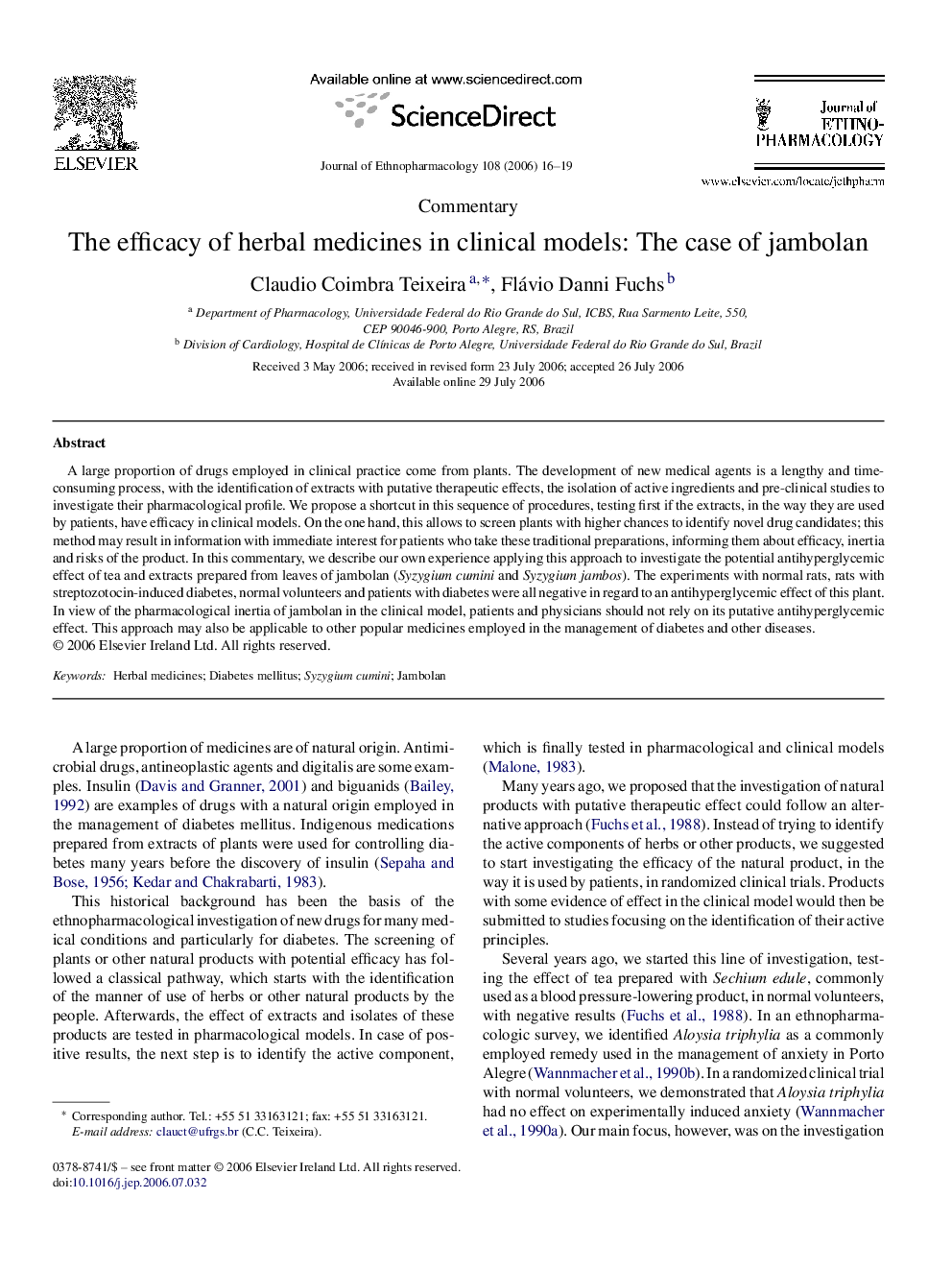| کد مقاله | کد نشریه | سال انتشار | مقاله انگلیسی | نسخه تمام متن |
|---|---|---|---|---|
| 2548166 | 1124085 | 2006 | 4 صفحه PDF | دانلود رایگان |

A large proportion of drugs employed in clinical practice come from plants. The development of new medical agents is a lengthy and time-consuming process, with the identification of extracts with putative therapeutic effects, the isolation of active ingredients and pre-clinical studies to investigate their pharmacological profile. We propose a shortcut in this sequence of procedures, testing first if the extracts, in the way they are used by patients, have efficacy in clinical models. On the one hand, this allows to screen plants with higher chances to identify novel drug candidates; this method may result in information with immediate interest for patients who take these traditional preparations, informing them about efficacy, inertia and risks of the product. In this commentary, we describe our own experience applying this approach to investigate the potential antihyperglycemic effect of tea and extracts prepared from leaves of jambolan (Syzygium cumini and Syzygium jambos). The experiments with normal rats, rats with streptozotocin-induced diabetes, normal volunteers and patients with diabetes were all negative in regard to an antihyperglycemic effect of this plant. In view of the pharmacological inertia of jambolan in the clinical model, patients and physicians should not rely on its putative antihyperglycemic effect. This approach may also be applicable to other popular medicines employed in the management of diabetes and other diseases.
Journal: Journal of Ethnopharmacology - Volume 108, Issue 1, 3 November 2006, Pages 16–19